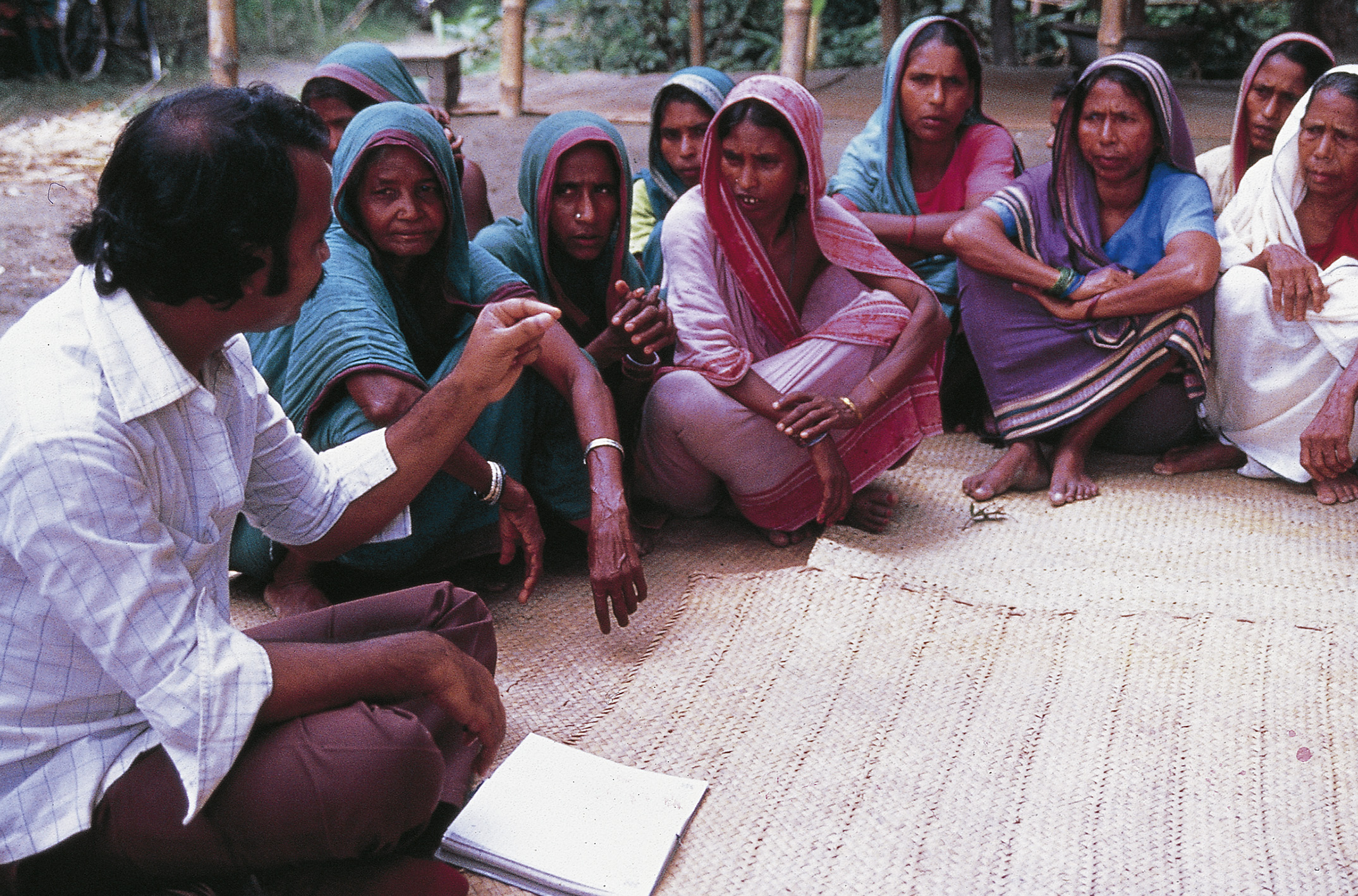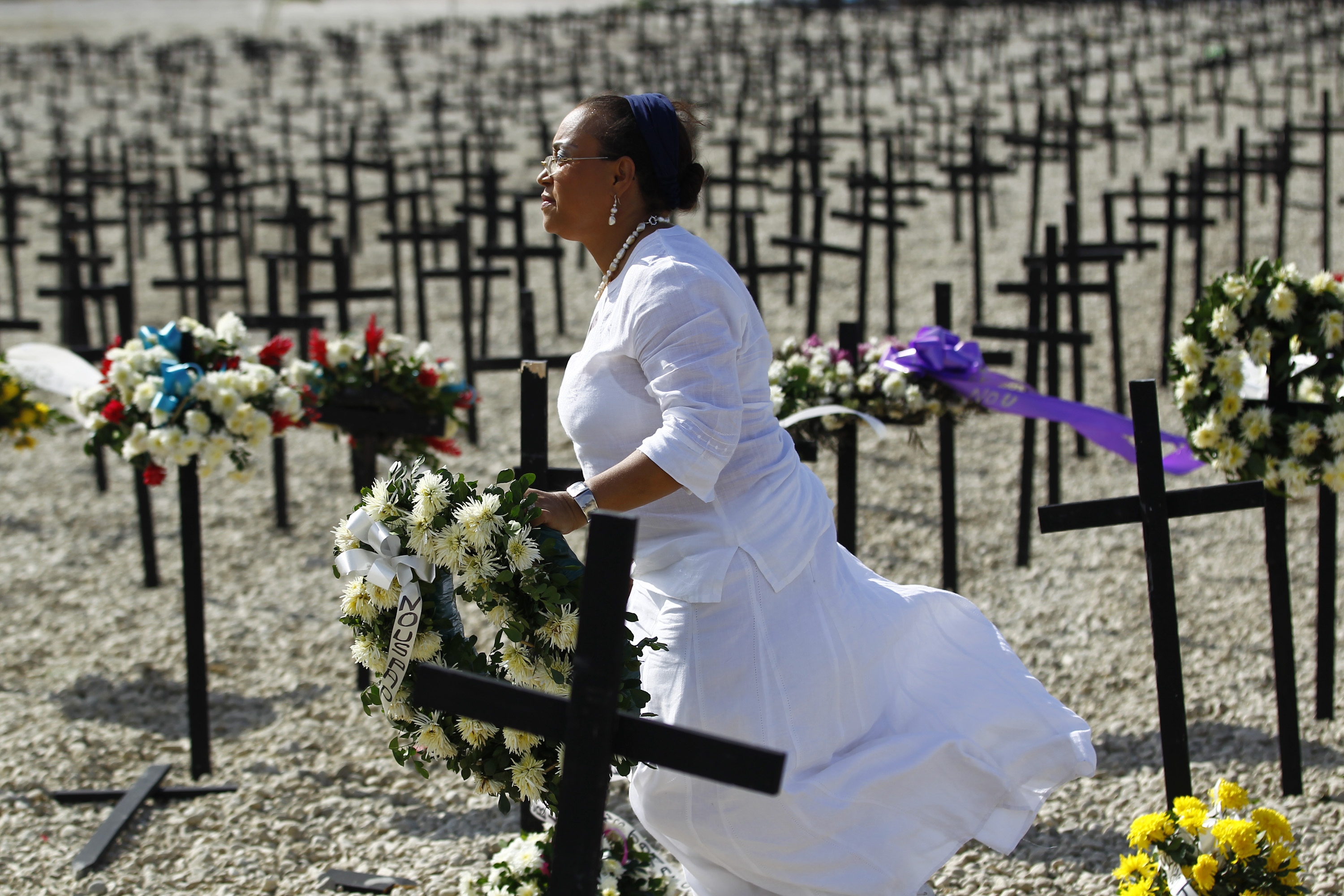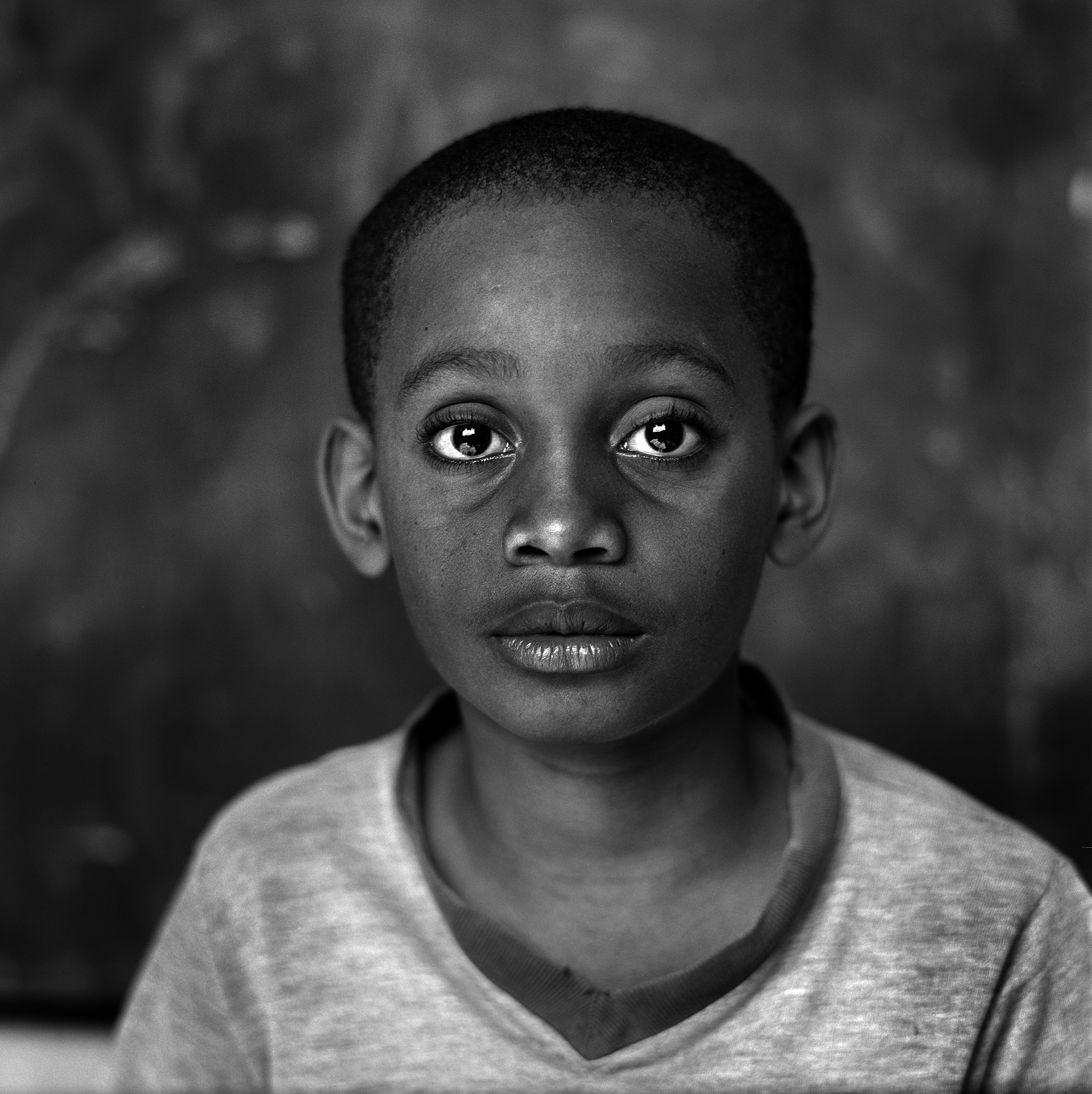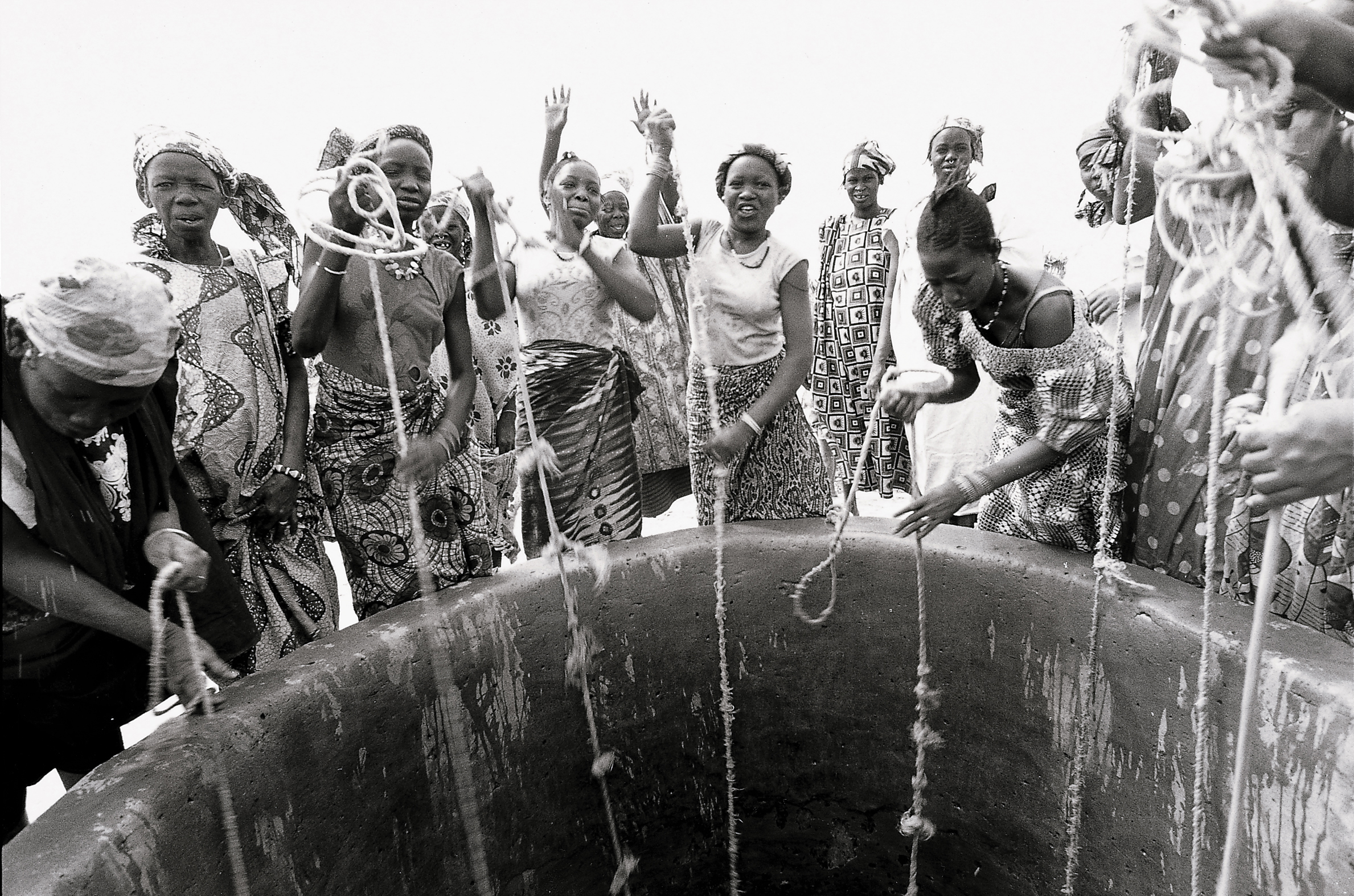“When I’m needed, I’m there”

Toni Frisch has spent more than half of his life in humanitarian aid, travelling to disaster areas all over the world, analysing situations, and taking decisions.
After more than 30 years with the Swiss foreign ministry, Frisch is retiring as head of the Swiss Humanitarian Aid Unit (SHA) at the end of April.
“Even as a small boy I was interested in foreign countries, and kept trying to imagine what goes on inside people who have had to leave their homes because of war or natural disasters, what they take with them, and where they might go,” Frisch told swissinfo.ch.
Since then he has seen a lot of misery and suffering, but can always keep his calm.
“If in a disaster area I were confronted with images which surprised me, it would mean I hadn’t made the correct assessment of the situation before leaving,” he explained.
He may have gained experience over the years, but he has not become callous. He maintains that if a person sees that what they are doing makes sense, they can “go on finding the energy to do it for decades.”
Parallel crises
Frisch is not getting the chance to wind down slowly as he prepares to retire.
“We have three parallel crises: Ivory Coast, Libya, Japan,” he pointed out. And that means a lot of work, including speaking to the media.
A few weeks ago he was called on to explain the actions of the Swiss search team which returned from Japan without pulling anyone alive from the rubble left by the earthquake and tsunami.
For Frisch the deployment of the team, sent at Japan’s request, was successful.
“We didn’t expect to save lives, otherwise we would have sent a rescue team. Our presence on the ground created a lot of good feeling towards us, and our radiation protection experts in particular helped orient people and reassure them.”
“It was a demonstration of solidarity. You can’t measure your proximity to the victims, but that is part of your success.”
Forgotten wars
He regrets that while the media pounce on headline-making events, the public remains unaware of much of what the SHA does, which includes preparing for disasters, long-term commitments and helping in forgotten war zones, like the one in Darfur.
“I am unhappy about that, but I can live with it,” he commented.
He is angry that after last year’s earthquake in Haiti – which attracted world-wide attention – a lot of helpers poured in, getting under each other’s feet. He wants to see compulsory certification for all organisations that provide emergency humanitarian aid in foreign countries – and it’s a demand that has fallen on ready ears in the United Nations.
“Not all organisations provided a professional level of help in Haiti. It is an insult to the victims when aid arrives that that no-one wants. The same applies to the tons of medicines which are past their use-by date.”
He waxes indignant over the fact that while professionals in all fields need a certificate to practise, many people seem to think that anyone can be an aid worker.
“Of course you need to care about people and to feel empathy with them, but so you do if you are a hairdresser,” he said.
Disasters mean chaos
Experienced managers will always put the needs of the victims first, whatever the political circumstances. Where humanitarian aid is concerned, Frisch said he was not interested in concepts like “Swiss prestige” or “competition between nations”.
Indeed, the different parties work together much better than many people think, he said.
“In major disasters everything gets confused. A disaster spells chaos by definition,” he pointed out. One only needs to imagine what would happen if Switzerland were struck by a serious disaster that left thousands of people homeless.
“I can only wish that people were less quick to criticise. You have to realise what it means when 20 million people are affected, and two million of them left homeless, as was the case in the recent major flood in Pakistan.”
Realism
He describes himself as having a “cheerful temperament,” and says he is “down to earth, resilient, flexible and open to new things”. He sees problems as a challenge.
But he says he is certainly as much a realist as an optimist. He is certainly 100 per cent pragmatic. He is critical, and always has more than one solution ready. “I like to have different options, otherwise I feel too constrained,” he said.
The example of his grandmother, who always feared the worst and hoped for the best has served him as a useful guiding principle over the 40 years of his involvement in aid work in about 80 countries.
He always tries to be sensitive to local circumstances, and to neither over-dramatise nor under-estimate what is happening.
To find the best way to tackle any situation he contacts partners on the ground, UN organisations, non-governmental organisations (NGOs), Red Cross bodies, government representatives and the victims themselves.
“I am in contact with everyone, from the minister to the illiterate victim.”
A little proud
Frisch has travelled relatively little this year. He has only been in Angola, Kenya, on the border with Somalia, at the UN in New York and at Nato in Brussels.
But travelling does not bother him. “I can sleep anywhere, and arrive refreshed. When I’m needed, I’m there.”
And now that he is coming to the end of his career as head of Switzerland’s humanitarian aid unit, he admits to feeling a little proud: “Because I achieved more than I could have hoped.”
But above all he is grateful that in its 40 years of existence, the unit has not yet lost a single employee in the course of deployment.
“We have had one kidnapping, and hardly any serious accidents. We have had a lot of luck.”
Born in Biel in 1946. Now lives in Köniz just outside Bern.
Trained as a civil engineer speciaIising in waste water technology and water supply.
Frisch is a colonel in the Swiss (non-professional) army.
Has been active in the field of humanitarian aid for 40 years and joined the foreign ministry in 1980.
Appointed head of the Swiss Humanitarian Aid Unit in 2001.
In 2008 given rank of ambassador and made deputy director of the Swiss Agency for Development and Cooperation.
Chairs the International Search and Rescue Advisory Group and UN Advisory Group on Environmental Emergencies.
Retires at the end of April 2011.
The unit is part of the Swiss Agency for Development and Cooperation (SDC), which comes under the foreign ministry.
The unit is made up of about 700 specialists in different fields available for direct action. It is a militia unit, i.e. the members have other jobs and work for it as and when needed.
The SHA provides emergency aid in cases of natural disasters, crises and conflicts. It also helps in reconstruction work and disaster preparedness.
Its budget for 2011 is SFr 312 million ($352 million).
It works with UN organisations, the International Committee of the Red Cross, NGOs and states.
(Adapted from German by Julia Slater)

In compliance with the JTI standards
More: SWI swissinfo.ch certified by the Journalism Trust Initiative














You can find an overview of ongoing debates with our journalists here . Please join us!
If you want to start a conversation about a topic raised in this article or want to report factual errors, email us at english@swissinfo.ch.